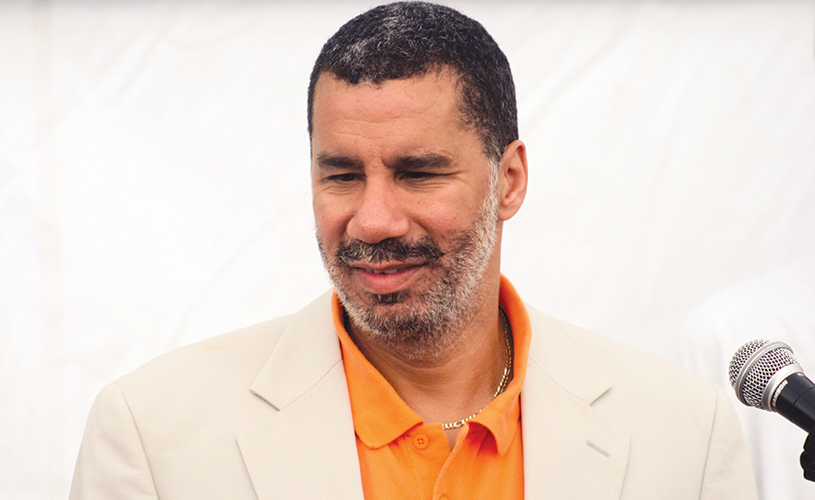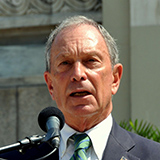2008 Newsmaker: David Paterson


David Paterson had a fairly brief and unmemorable stint in the governor’s mansion, but he earns the newsmaker designation as part of the ripple effect from Eliot Spitzer’s prostitution scandal and for making history as New York’s first black (and disabled – Paterson is legally blind) governor.
While Paterson was not considered the ascendant star that Spitzer was, he managed to make plenty of headlines during his first year in office, both good and bad.
One day after his inauguration, he acknowledged that both he and his wife had extramarital affairs, and, in a separate interview days later, revealed his drug use as a young man. He also made the controversial decision to sharply reduce government spending in the wake of the financial crisis.
Paterson also deserves credit for laying the groundwork for New York legalizing same-sex marriage. In May 2008, Paterson directed state agencies to recognize same-sex marriage licenses from other jurisdictions for the purpose of employee benefits, which led to a flood of public criticism that would, more than a year later, lead to a same-sex marriage bill Paterson championed being soundly defeated in the state Senate. The failure did help lay the groundwork for the successful passage of a similar bill in 2011.
Paterson’s legacy will also be marked by the reforms of the widely unpopular Rockefeller Drug Laws.
Of course, Paterson’s most impactful decision that year had little to do with state government or policy. Hillary Clinton’s appointment as secretary of state in 2009 left a vacancy in the U.S. Senate that Paterson was tasked with filling. Seemingly every politician in New York threw their hat in the ring for the seat, and Paterson drew criticism for dilly-dallying on the pick. He ultimately settled on Kirsten Gillibrand, at the time a relatively unknown congresswoman from upstate.
2008 Newsmaker, Runner-up: Michael Bloomberg

When New York City Mayor Rudy Giuliani lobbied Albany for a 90-day extension of his term in the wake of 9/11, then-Republican mayoral candidate Michael Bloomberg gave his blessing. Seven years later, Bloomberg cited a different crisis – the city’s dire economic situation in the wake of the financial sector collapse – as reason enough to give him another four years at City Hall.
Opponents of allowing the mayor to seek a third term consistently argued that Bloomberg and City Council Speaker Christine Quinn flouted the will of the electorate by not making the decision via a ballot referendum. But the Council narrowly approved the measure, paving the way for Bloomberg to become the first mayor since Ed Koch to serve 12 years in office. Prior to the third-term vote, Bloomberg’s steady hand shepherding the city through the financial crisis also led to increased speculation that he could run for president in 2008 as an independent, though the mayor consistently denied any interest, and ultimately declined to endorse a candidate in either party.
NEXT STORY: 2007 Newsmaker: Thomas DiNapoli